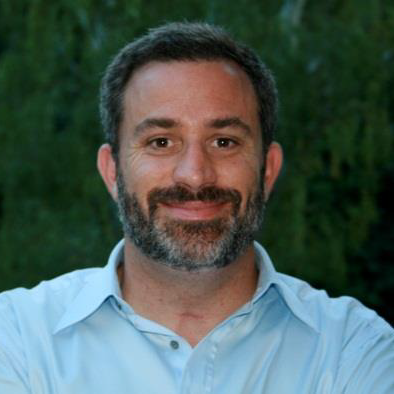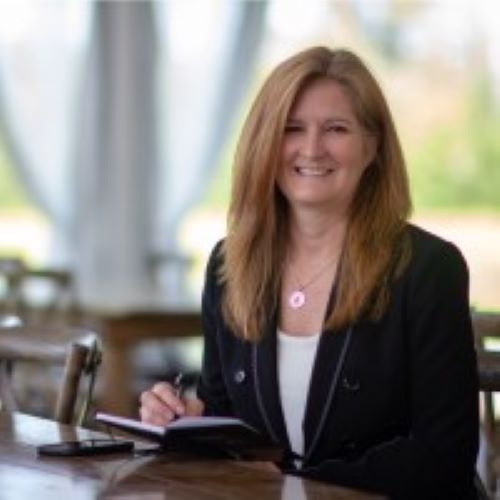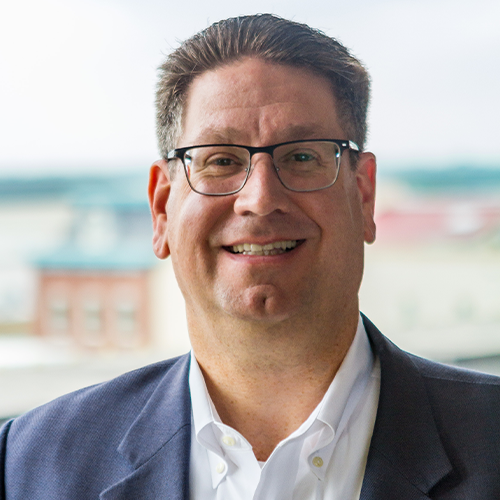Mike Rea
Episode 56: How Social Enterprises Drive Change in Communities, with Mike Rea
In this episode, you will learn about social enterprises in the travel and tourism industry and how they can really drive social change and positively benefit communities from Mike Rea.
Mike Rea is a social entrepreneur who has been committed to creating philanthropic value and impact for more than 15 years.
Mike has been President & CEO of Tourism Cares since July 2013, building on its momentum to unite the industry around critical philanthropic needs and opportunities that are best tackled together. Tourism Cares leverages charitable investments and expertise to build sustainable travel destinations for future travelers, the tourism industry, and local communities.
Mike’s career in philanthropy is diverse, entrepreneurial, and focused on outcomes. He co-founded Give2Asia in 2000, an affiliate of The Asia Foundation which to-date has facilitated more than $300M in personalized philanthropy. One area of specialty is disaster relief, and Mike’s personal research project, www.TsunamiPlus10.org, revisited the long-term impact of Give2Asia’s 2004 tsunami investments.
In 2008, Mike served as Regional Philanthropic Executive for the Philanthropic Management division of Bank of America, leading client relations with nonprofits and foundations in the West and Central regions. In 2010, he joined the College Ready team at the Bill and Melinda Gates Foundation, where he supported the strategy, management, and execution of the foundation’s US K-12 education strategy.
Mike earned a Bachelor of Arts from Middlebury College and a Master of Arts in Asian studies and anthropology from the University of California, Berkeley. He is also on the Board of Directors of the US Travel Association.
When not traveling, he Seattle life with his daughter, Elsie, and other passions include flyfishing and the MLS soccer team Seattle Sounders F.C.
More on Mike’s Background
Thank you for joining me Mike.
Hey, thanks for having me and good afternoon.
I’m so looking forward to this conversion in the new year here of 2018. Before we dive into the conversion I’d really like to have you share a little bit more about your journey and your path. I find our listeners learn so much more when they hear it in your own words.
Thank you. I’ve been blessed to have a neat career. I started off in journalism and in Asian studies in Japan, and taught English over there, and did a whole range of things. But who knew that philanthropy — I wish I was a philanthropist, but I get to work with philanthropists and corporations, and philanthropists and foundations — but who knew that sort of philanthropic opportunity would be my career, but I’m blessed and honored to have actually done it. I think if there is one thing that is a thread through my career, it is this concept of identifying and supporting philanthropic opportunities. That’s why I took the job at Tourism Care four and a half years ago upon leaving the Gates Foundation.
There was incredible love, care, stewardship, and sustainability from the travel industry to the places and cultures and people that we all love as professionals and personally. There was a lot of good giving and good volunteering and strong interest in giving, but if there is something we can do to boost that to make the giving even more effective and more satisfying for travelers, professionals, and companies, that’s something that we’ve been really working for four years on which is taking the inherent interest and care for destinations and doing everything we can ramp it up further.
Hearing my own background, another thing that people might be interested in is, I’ve never worked for a tourism company. I’ve been here at Tourism Cares for four years. Again, I have a background in philanthropy, but I did do my anthropology work at UC Berkeley for my Master’s degree in Anthropology of tourism. Anybody who is looking for some quick to sleep bedtime reading there is the Annals of Tourism Research, there is an academic journal for everything, but there is the ATR, the Annals of Tourism Research. And actually, I have my Master’s thesis in there, which was outbound Japanese tourism to two special places. One is Beatrix Potter’s lake district and the Hilltop cottage in England, and one is Anne of Green Gables’ sites on Prince Howard Island. So, separate topic, but I do bring additional tourism interest to the table as well.
I think that’s really cool because most of the guests that I have on this podcast share a similar kind of story in that they happened upon working in the tourism industry, but it wasn’t necessarily their original path. What I find really interesting is, first of all, you have a love of travels, so I think a lot of times for us in the industry that’s starts to attract us. You’ve got a lot of that first-hand research in the travel that you’ve done. But then to see the work you did in college and just kind of how so many years after you graduated from college how things come full circle. That seems to be a theme on this podcast as well, so I think that’s really awesome.
Social Enterprises in Tourism
I do have a question for you though, as you talking about your background, and I was reading your bio. I’m really interested in this whole idea of social entrepreneurship. I’m going to go off the question flow here with the first question. This whole idea of bringing those entrepreneurial principles and visions, skillset if you will, to philanthropy and then of course to Tourism Cares, but you can talk about how that intercepts because I just find that really fascinating?
Yeah. The concept of social entrepreneurship or social enterprise has been around for probably 20 or 30 years now. Anybody interested in additional detail, there is a group Skoll Foundation, founded by Jeff Skoll, one of the founders of eBay. There are many others. There a Schwab foundation, not Charles Schwab, but the Schwab Foundation for Social Entrepreneurship. There are a bunch of resources out there, and it can be a very broad concept, which is just people bringing — which you sort of hinted at — business acumen and principles to running non-profits. Skoll Foundation supports some of those as well as others that really bring social enterprise down to actual business models and earned income or free for service models where there is a good or service — maybe it’s a non-profit, but doesn’t have to be — that is offering something that is purchased and then through their operation creates social benefit.
We can talk about a couple of those because that’s nearly where we’re focusing on, which is taking the travel trade and the buyers and the system of tour operators and travel agents and others and plugging them directly into social enterprises where the very act of travel — whether it’s where you stay, whether it’s where you eat, whether it’s like certain special experiences that you can actually have — by doing those and supporting them and paying for them has a double or triple bottom line where not only do you get an amazing experience but you’re also directly helping an organization and directly helping a community in a fairly strategic way.
I think that’s a really great point. I like how you talk about bringing those business models into the nonprofit world or into this work that you’re doing and thinking more in terms of the bottom line and not necessarily just in terms of the ROI and not necessarily just the good deed for doing a good deed. Does that make sense?
Yeah. I think I can probably do it better, but I think one of the principles that I’ve tried to adhere to in my career through this space of creating philanthropic opportunity is to really have it needs-based and sort of a mutual benefit model. Whereas as you probably experienced the last couple of weeks around the holidays, you probably got 500 emails from nonprofits asking you for donations. That’s great, that’s amazing, we seek donations, we have some wonderful donors and angel donors.
That’s very much an important part of any public benefits social cause. But given that we represent the industry, given the travel industry is so vast, I think things just get turbocharged and easier and faster if you can actually be a part of the supply chain in a very real, concrete way. Social enterprises for tourism have a particular value in that you’re creating something super authentic, going back to my anthropology days, and I’ve had authenticity, but you’re creating a very special experience through doing and giving and helping. So, it’s just on that basis of purely a travel product or experience, it’s big thumbs up and a plus. In addition to that and what feeds that is the people you’re helping, the disadvantaged population you’re helping, the communities you’re helping, and it’s all of that together. In doing that where you align interest and business interest, makes uptake and adoption much, much, much easier because it’s natural as opposed to an extra ASK in a very busy world.
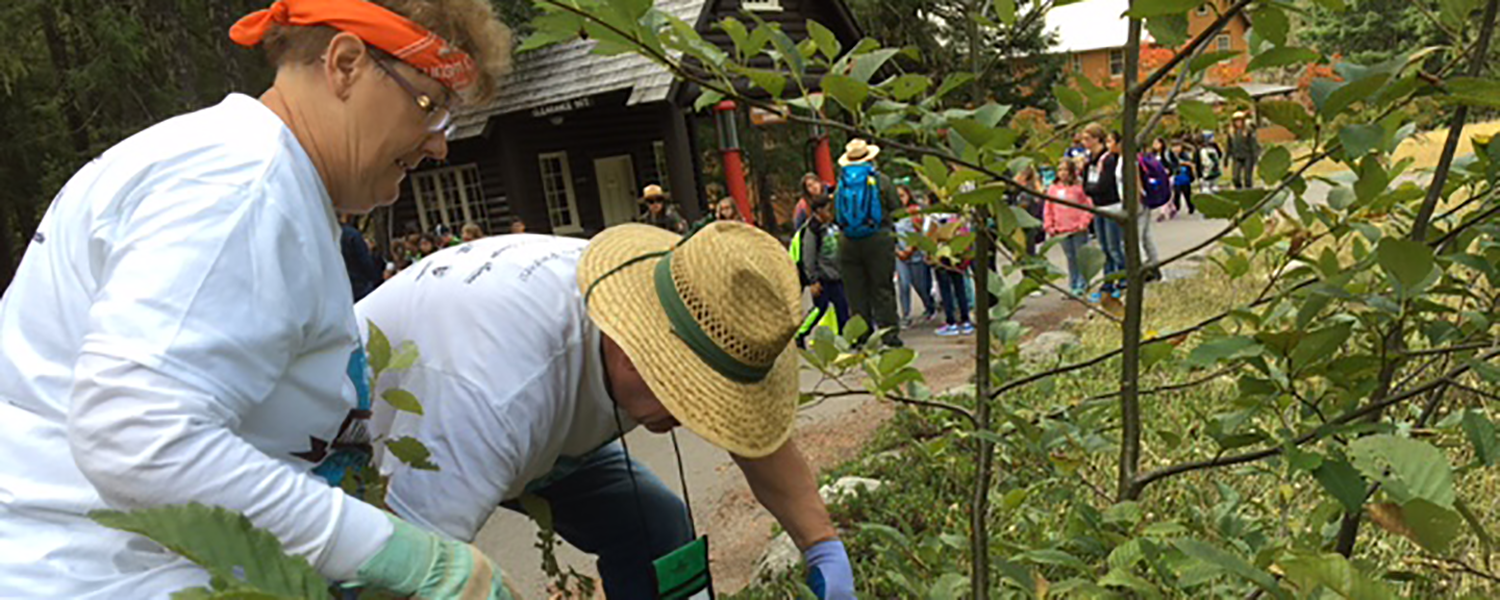
[bctt tweet=”“Social enterprises for tourism are valuable because they’re creating something super authentic.” – @philanthromike #WhyCollaborate #podcast”]
Yeah, I love that. That’s great, and that’s a really good point because I think having everything aligned like that is so important today.
Giving Programs Should Complement, Not Compete
I’m really looking forward to this conversation, and I think we’re going to get a little bit deeper into some of those examples that you’ve eluded as we go through. As we discussed on our pre-interview chat, we do focus on two areas for this podcast conversation. First, on creativity, and then on collaboration. A lot of times it’s hard to talk about one without the other because they seem to go hand in hand especially in this industry, but we’re going to start on the creativity side and the very first question here is with regard to how competitive the tourism and hospitality industry is and wondering maybe from your perspective at Tourism Cares, what kind of creative ideas have you either as Tourism Cares or have your members done to stand out from the crowd?
I think one of the things that we’ve adopted here from the very beginning of my tenure is actually realizing that as Tourism Cares, as the industry spanning nonprofit founded by many of the industry’s association such as USTOA and NTA, with links to so many others whether it’s US travel or ABA or the Alphabet soup can go on and on. But we have lots of great partners and how we relate to our members. I think one of the things that we’ve really focused on is being complementary rather than competitive and realizing what we do not want to do. We believe that every company should give back to the best of its ability. Our big vision would be the entire industry aligned and getting in alignment with their own goals and their communities.
Some of that, a small percentage of that might come through Tourism Cares, but one of the things we realized is that we do not want to compete with the signature favorite charities or causes of any company that already has one, or what a company that wants to get into giving and more corporate social responsibility, what they should do aligned with their business and where they work, where their employees are, where clients go, their own culture. So, we’ve built our community through a membership plus model. The entry level for corporate membership, it’s a corporate community from Tourism Cares is 1,500 bucks. It goes up, but we actually capped it.
The whole point of that is to be very clear about our value prop, our niche, and we are empowering and complementary rather than competitive because if there is an organization, say, like Amadeus that has a long deep history with Camillus House or another cause in Florida or Haiti. We want to learn about that, champion it, tout it, and share it and not compete with it in terms of contributions. It makes sense for the community we’re building, but we’re going to lose that ask anytime. So, we just want to stay away from it. It’s a nuanced thing but we’ve really tried to be complementary than competitive and that’s a creative twist that we’ve brought to our model.
I think that’s a really great way to look at it because you are serving such a broad audience with your members being focused on the entire United States, but there might be one of your members who is in more of a local or like you mentioned maybe the state of Florida and they’re very focused on something there. So, being able to understand where you fit and where you bring that value proposition to play, I think is great. Very smart.
We’re happy to compete in a million things, and that’s the membership plus model. It’s a big tent, the industry is big, you know better than I do. But it’s a tent strategy, which is everybody listening to this or whatever should think about joining us in the tent and the community because we believe we give better together. But everybody should do their own thing. And then the plus part is our programs. If anybody has really probably heard of Tourism Cares, it’s for our annual big volunteering pow-wow project type gatherings where we bring 300,400,500 industry professionals, not travelers together at a place like Plimoth plantation or Miami, or the Florida Keys after a hurricane to give back together.
On the one hand, that’s complimentary. So, I would say to say any company say in Miami, I’d say like do whatever you need to do in terms of volunteering what you want to do, whether it’s homelessness, or a food bank, or Habitat for humanity, do that but then also come to our industry-wide project. Another topic we’ll talk about is disaster giving. We will compete on programs and impact any day of the week, but we did build everything around complimentary as well.
Great. I hope that in our conversation we’ll get there, but I’d like to talk also a little bit about how you evaluate those programs because I know you had some really good research done recently, so I want to make sure we get to talk about that as well.
I think that’s just a really great way to start us out really talking about where you fit in terms of the greater picture, how you serve your members while also serving the needs of the travel industry, the destinations that we all love, and I think you used the word that we’re interested in and care for.
Why Travelers Are Eager to Give Back
I also know that creativity can actually appear in the face of adversity or a challenge and you certainly just mentioned a few with the recent hurricanes. I’m wondering if you can talk about a challenge that your organization faced or could be one of the projects that you served and kind of the creativity that came from that?
I’m going to drop Destination Disaster Recovery to the coopetition part of our conversation. What I’ll focus on more in organizational but also a very industry-wide important piece that was a challenge that we faced and I think we met it pretty well and it actually sinks up with some of the research, which is “we’re a corporate organization, we work with many different corporations, we have members at all different levels.” One of the gaps that we had when I showed up was we really didn’t have anything for the travel agent community. I’ve not traditionally used a travel agent, but I certainly understood when I entered the industry that travel agents have a strong niche, a resurgent niche, and I think it’s growing. It’s certainly a big part of the industry whether it’s a different consortia or other home-based folks.
It took us a couple of years but we were waiting for the right thing about how can we best support the travel agent community in our mission of promoting the industry’s social impact so that people in places can thrive. The thing that led us there was we worked with Phocuswright and Northstar on some of the first research on how travelers systematically think about charitable giving, volunteering, and social experiences.
You may know from your experience — there certainly have been a couple of studies here about volunteerism and a little bit about green sustainability and whether people are paying for their towels, or organic food, or whatever it might be. But this was different. The research found just high degrees of actual giving to some extent of travelers as they give back, giving and influence some of their buying decisions, travelers who gave associated their gifts and communities and stewardship with high degrees of satisfaction, travelers were interested in getting more involved in the future and learning more and staying connected. Anybody interested can go goodtravels.org to learn more about the Good Travels research, or you come to tourismcares.org and click on the research link. But there is some really neat stuff there like an infographic. But the natural extension of that was adopting that for travel agents, and I can tell you a bit more about that.
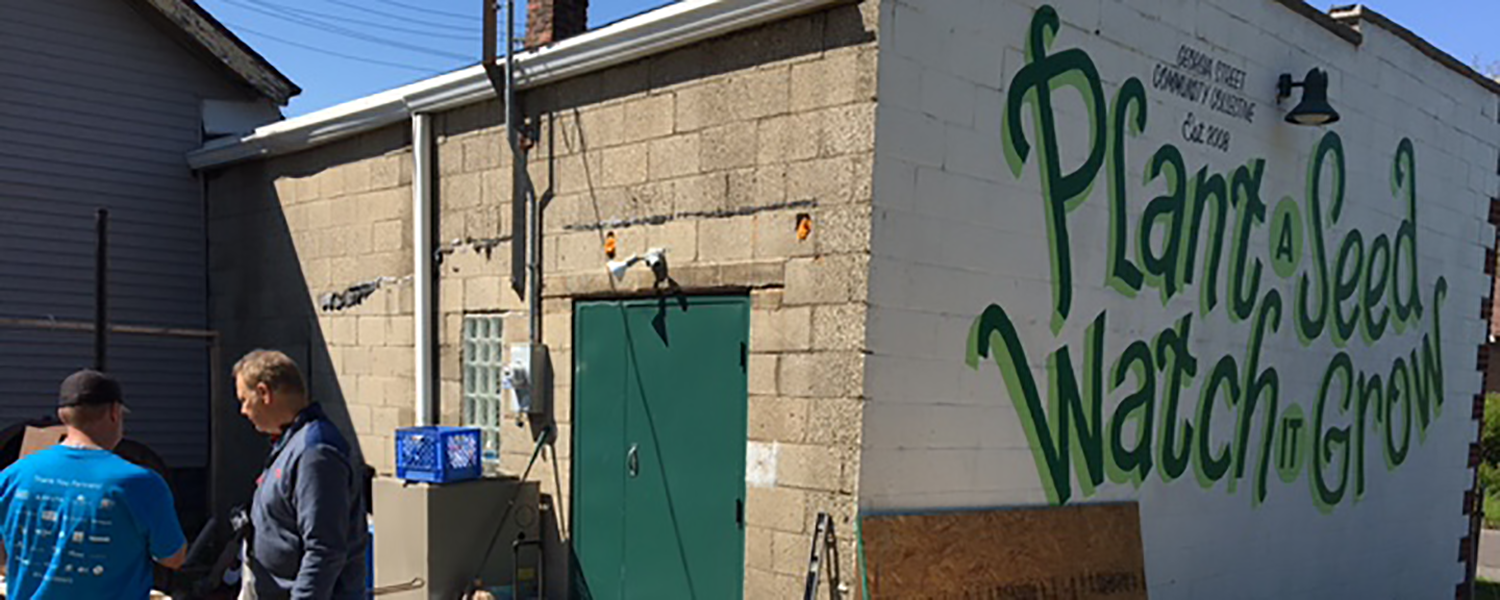
[bctt tweet=”“Our research with Phocuswright proves that travelers get satisfaction from giving back and are eager to stay connected.” – @philanthromike #WhyCollaborate #podcast”]
Great. Yes, please do, I’d love to hear that. I think you’re right with the travel agents. There is a resurgence of travel agents, especially in this country. In other countries, it’s pretty normal to use a travel agent, but here in the US we like to be a little bit more independent, I guess. But they certainly are making a comeback, and they have a very important role to play. I’d love to hear more about how you’ve used that study to fill that gap.
The assumption is that giving — I mean, you almost see it in things like the Giving USA study, which just looks at overall charitable giving in the United States, which is we can talk about each of our causes or a travel agent can talk to their clients, but people give at home, right? People give, they donate, they volunteer, they serve on boards, they use giving to engage their kids and the next generation.Those are all I think increasing and certainly have increased over the last several decades. So, giving back matters to travelers, travel agents, and clients.
Then the questions were, how can we make sure that more good stuff happens than either bad or inaction? So, we took a familiar vehicle, which is sort of the online course university of the online training module that you just walk through and you get certified in a certain product or certain destination whether it’s a cruiser or a tour operator or a place. We took that with NorthStar and built out the Good Travels advisor program, which probably takes 60 minutes. It has basic tips on giving, volunteering, and social experiences of clients and how travel agents can really engage them.
I actually took this example from some of this work, including my research from my time at Bank of America. And you saw in the wealth management space that increasingly … I won’t say this of travel, but whether it’s hotels or tours or the analog and wealth management, which should be mutual funds or ETFs or portfolio allocations. What really stands out in the wealth management space is if you’re a financial advisor and you’re engaging your clients on values and stories and family and meaning.
The idea was if you’re a travel agent, in addition to providing all the amazing guidance you already do, not for everybody but if there is an opportunity to talk about values, stewardship, what you cared about, why you’re going especially whether it’s a developing country or not. A lot of travelers are giving back or thinking about the stuff anyway, so if it can be resource to help travelers give back better, they’re going to see you as a travel agent in a different light. The relationships are going to be stickier, they’re going to come back to you because you’re not just providing a gateway to products but you’re actually getting into the meaning space.
We have around 500 certified good travel advisors now, they’ve gone through the course that have gotten tips and videos and a graduate center for resources. We have great sponsors such as AIG and myriad that all made it happen, this all takes some good effort. It’s really exciting. Now we have a pretty good community that’s growing of travel agents that have a base level of knowledge in this social and philanthropic travel, and there is more to come.
We recently released a guide on of somewhat vetted volunteer travel providers, we’ll be doing some other work coming up in Jordan that I’ll tell you about around social enterprises. But it’s an example of four years ago, we loved travel agents, we loved many of the companies and consortia that were involved. They volunteered with us, but now we have a dedicated mutual benefit, highly aligned program to engage and really provide value to travel agents that is a win for them but definitely a win for us in terms of encouraging them to work with clients in a very sustainable, productive way.
I think that’s just an awesome example because you’ve identified this gap in this segment that you wanted to start this relationship with or increase relationships with, with the travel agents. The way you did that is by helping them build stronger relationships with their customers, and in turn, you’re now having stronger relationships with the travel agents. I just think that’s just a fabulous example of how you can really get creative in thinking about something. I love that you used the research to help you do that. I think that’s awesome.
And it’s scalable, which is nice. It uses technology, people can take it. We’ve done some webinars, we need to do more going forward in terms of activating this community, but it’s been really great. Many of the consortia involved, ASTA’s involved, IATAN’s involved, the Travel Institute’s involved. It’s only being out for 14, 15 months, but it’s a neat program and we can replicate it in different ways whether it’s for hospitality and concierges or tour operators and destinations. But it’s a good start. Again, it’s a nice win-win that seems very aligned that just makes sense, and if it makes sense then hopefully it’s going to work better than other stuff.
Yeah, absolutely. I have a question, from the study where — and I have the infographic actually up on my screen — but where you identified that you’ve some different market segments, the millennials, the affluent, families, and how interested they are in terms of volunteering and giving money. How do these consumers seek out these experiences? Are you finding that they will just go to their travel agent to look for them, is it they’re looking online, how are you impacting that?
We’re doing what we can as sort of a wholesaler of knowledge in the industry, but it’s exciting. Actually, I haven’t really thought about it this way, but I think a lot of this has really happened over the last three, four years. There is a long history of volunteerism and everything else, but I think Fathom, the cruise line by Carnival, started, made a big splash, and has kind of faded away a little bit, but I know it’s coming back and has a sold-out set of cruises for the Caribbean. They put a lot of effort in marketing and raising awareness of this in the industry. I think they’re sort of part of it or maybe they’re an indicator.
But there are lots of different ways to get this. Maybe it’s your travel agent. There are some portals like visit.org that aggregates these sort of experiences at least on the social experience side. Airbnb has launched social impact experiences, so if you’re staying somewhere you can actually jump onto something really authentic and local provided by a host but in a more experiential way. We offer some resources, others are tour operators, Abercrombie & Kent, Mikado, Crystal Cruises. There are many, many tour operators here in America that integrate some of these experiences and options into their activities Lindblad Expeditions in the Galápagos is a signature effort or example on that.
The word has gotten out. It’s made it through the system. One of our goals is to promote, to tighten, and to promote quality, to promote good volunteering versus bad volunteering, to promote child-safe activities. Information is out there, and we’re just trying to boost it and maybe aggregate it a little bit.
I think that’s great. You used the term wholesaler of knowledge, I think that’s a really good way to think about it because there is so much information out there but trying to figure out and navigate what would be best for me, and anything you can do to help me navigate that I think would be great.
Tourism Cares for Jordan
So, switching gears, just slightly, but we’ve already been talking a little bit about this. But looking into the future, is there a project that you’re really excited about that you’d like to share with our listeners?
Yeah, it’s timely, but it’s also been a long time in the making. One of the things we do is create global partnerships and create a global network of like-minded industries and sectors in different countries. Five, six years ago, we lead a delegation to Peru before my time, that was a tremendous success and created all sorts of value. One of them was actually helping start just from our program, but it was so locally led. A local organization called Tourism Liquida. It’s now a group of Peruvian tour operators and companies that like us band together to aggregate resources and give back to their community. They make grants and support projects, they don’t do volunteering, so it’s obviously up to any country or any association or coalition on what they would do. The thing that we’re excited about it’s rallying a segment of the travel industry in a different region, different country to give better together.
Again, same would apply, which is many of those companies do their own thing Lima tours was an anchor partner in the leadership there. There is Lima tours foundation but they’re also a big supporter of Tourism liquida. It’s being several years trying to get me on board and get us reoriented to what next, and late February we’re leading a delegation to Jordan and Tourism Cares for Jordan is going to look at a couple of things, it’s going to look at sharing of corporate social responsibility, best practices by international and Jordanian counterparts. There will be a volunteer project, there will be all the extraordinary community experiences in sights and sounds of Jordan.
But we’re also really focusing on social enterprises where just this morning I talked with our researcher there and the very least we’ve identified 13 really top awesome different stages of social enterprises where a travel agent can make a recommendation, a tour operator can go to Jordan and have an experience where they’re learning and doing something really neat, something super authentic and cultural that also again has this additional benefit for the community, for the broader community and in some cases some disadvantaged communities.
So, I’m really excited about that. It’s coming up pretty quickly — it’s in the next couple of months. It’s a new part of the world, it’s a very important part of the word, and it really is just showcasing how the power of travel even beyond just the ordinary power of travel, but when focused in a certain way, in part can really drive social change and positive benefit in communities, and that’s just exciting.
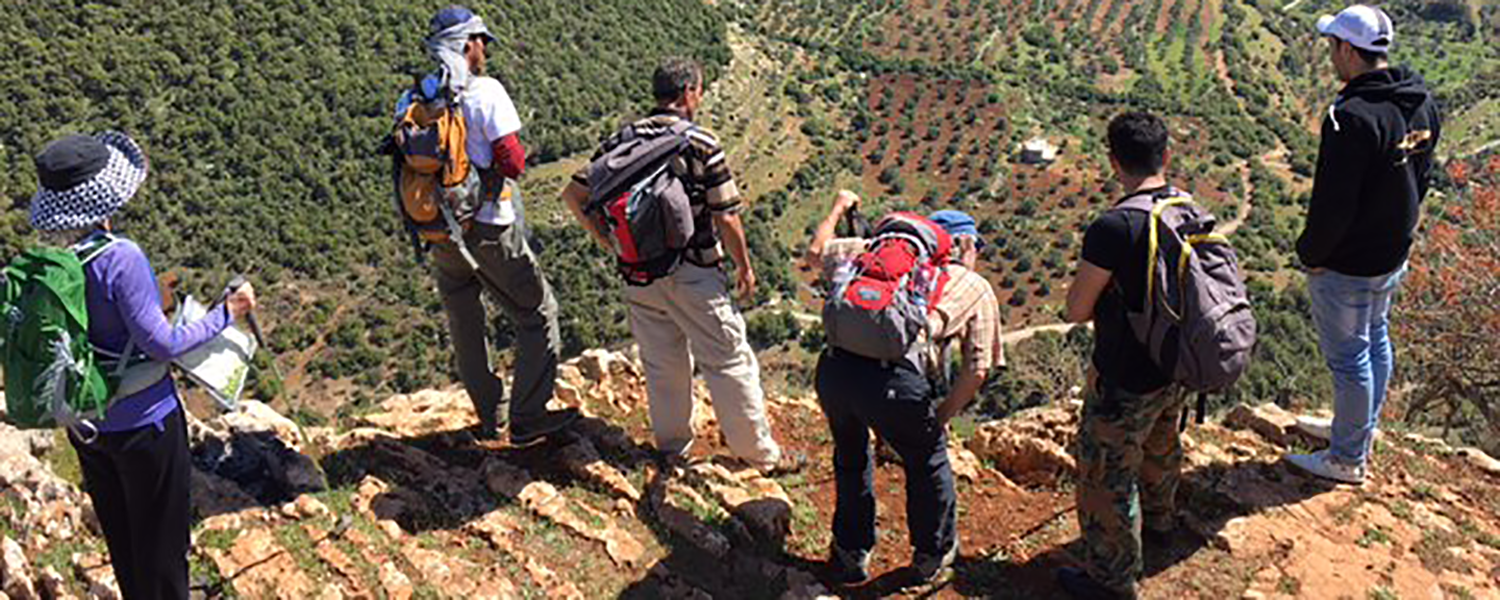
[bctt tweet=”“When the power of travel is focused in a certain way, it can really drive social change and positively benefit communities.” – @philanthromike #WhyCollaborate #podcast”]
That is really exciting. This conversation is actually just making me think a little bit more about a conversation I had on a previous interview Episode 44 with Rick Antonson where we talked about this concept of Cathedral Thinking. Ever since I first learned that term and then had that conversation with Rick, most of my podcasts bring me back to this whole idea of Cathedral Thinking and the work that we’re doing, the work that you’re talking about, which is really foundational work that you’re building for generations to come that you may not even be here when it’s fully realized, but you’re laying this groundwork and going over Tourism Cares for Jordan really kind of looking, having that long vision, and I think that’s tremendous and very exciting.
I’m going to have to listen to that, and I’m going to go Google Cathedral Thinking when we’re done with this.
Yeah. I learned the concept at a Destinations International conference, Rick was introducing someone and he used the term, and I couldn’t wait to go Google it. I’ll send you the link to the episode. It’s a pretty fabulous concept and it just rings true for so many different things that we work on.
The thing about Tourism Cares is we get to do two things hopefully at once and one is longer term. The volunteering projects we do are just outstanding and just feel, and feel wonderful, great community, and making a very tangible visible immediate impact. We’ve added Pro bono volunteering, we do some scholarships and mentoring and other programs. So, we do a lot of that, which is nice and immediate and visceral.
I think the second part — the bigger picture — is we’re really trying to amplify how the travel industry and the very act of travel can make a difference in the long term. Some of that is structural, some of it is training, some of it is this awareness — we do CSR awards, we do peer learning, but really empowering the industry to make the greatest impact it can. Again, I’ve not been in the travel industry for too much of my career but I can only assume. You said some people fall in with, but people fall in with probably because of love, which is they love people, they love travelers, and then I think if you’re a traveler going to a place again and again or maybe a couple of times or a professional that’s committed to a place, you love and care about these places and you want to do the best you can but everybody is busy.
The more that we can have the very active travel in the supply chain, and CSR all aligned to help, and if we can do incrementally any amount to help this broad beautiful industry help a little bit better, that’s worth it in the long term.
Yeah, I agree. I think that’s awesome.
Coming Together During Disaster Time
I want to switch gears just a little bit and talk about collaboration. I think you mentioned it earlier this word coopetition. This is something that struck me as I started working in this industry, it’s how often perceived competitors can come together and do come together to create something that’s bigger than what they could have done on their own, and I just find it fascinating. I’m wondering if you can describe a time when a collaboration between perceived competitors has worked?
So, and it’s faded some certainly not for some communities, they’re still in crisis. But sort of August through a bit of the fall was just an extraordinary, terrible, challenging, but also inspiring time for some of our best and most interesting destinations. We had three hurricanes, earthquakes, self-inflicted shootings, or man-made events, natural events. It was a tough time.
I first worked in disaster recovery from the South East Asia tsunami, I think you mentioned it in my bio. Did a lot of work in Sri Lanka, went there soon after the earthquake and tsunami there. I’ve been fascinated by and inspired and humbled by the power of disasters but also the power of recovery and the power of philanthropy, and in some cases quote “build back better. That’s a lot, it’s a big thing, it’s really hard to do. Disaster recovery is just messy. We piloted an effort in Nepal after the earthquake there a couple of years ago, and our community came together and the industry came together with or without us, and it was just an amazing way after just true to strategy is some of what lives on in Texas, Florida, the Caribbean, Mexico, elsewhere.
You mentioned Destinations international, one of the things we did — and this is where we get to be the industry-wide non-profit. We pulled together a coalition of 13, 15 different associations across the entire industry to give together to get the word out to contribute to a joint fund. Again, in addition to maybe your favorite charity, maybe it’s the Red Cross, maybe it’s Lets Save the Children, maybe you’re a Florida company and you’re giving locally, we know many companies including the travel corporation that gave to not even to non-profits but to local affected partners and travel agents and staff. The disasters were so widespread, a lot of people were taking care of their own communities as well as others.
But it was just an incredible for the industry to come together in addition to the relief work that everybody was doing one way or another to support destinations, to support tourism, and to support the recovery of tourism. We launched a couple of different destination disaster recovery funds, at that time we raised probably collectively currently over $400,000 to $450,000 from hundreds of donors from different places. We’re excited about putting that money to use. We will be focusing on social enterprises and volunteerism and a whole bunch of other things. It’s probably the purest example of coopetition and co-operation and coming together and not competing when there is great need.

[bctt tweet=”“Disaster recovery is probably the purest example of coopetition and co-operation and coming together and not competing when there is great need.” – @philanthromike #WhyCollaborate #podcast”]
Yeah, I think that’s a great example. And there are several things I like about what you were just talking about. First of all, you used the words build back better, and you do all of these all kinds of help actually to build back better. Of course, not just from our industry, from government, from everywhere, right. To all come together to help a recovery effort.
But also what I liked about what you talked about being someone who doesn’t live in one of those places that were impacted. You feel like you want to do something, you want to and you’re not really sure where to give, and so being a professional in the tourism industry, I can see feeling pretty confident and comfortable with giving or directing my giving towards Tourism Cares and knowing that it’s going to go towards something that I’m passionate about and that it’s going to help. I think you serve on a couple of different levels with that example, and I think that was just a great one.
Yeah, and where this is part of my philanthropic background I guess. One of the early press releases we announced wasn’t even raising money for us, it was just tips on good disaster giving. After the tsunami, I framed up a concept of diversified disaster giving. I mean, it’s just tremendous, we’ll learn through The Giving USA another research next year about the outpouring of support that happened in 2017 especially during those three or four months. I’m not one to pick champions or winners or losers, but the concept of diversified disaster giving was simply think about as a little miniature of a portfolio if you’re giving 100 bucks, or 200 bucks, or 300 bucks, or much more give to recovery as well as relief because everybody gives to relief and recovery needs funding as well.
Give to local organizations as well as national ones or multinational because if the organization you fund you find out four years later didn’t do a whole lot, you want to at least say, hey, my plan B was this organization over here. And then another tip was save some money for giving later. If you said, okay, I’m going to give 400 bucks to these various disasters, I’m going to give 200 now and I’m going to give 200 in January or February, you do some research now, and the entire landscape is different. The causes you might give to the organizations you might give to are going to be different. You can make more of a difference even with your small amount, but you’re also going to learn and feel about it a bit differently. Those are some principles we put out there because for all the tragedies of disaster that they do create especially in this day and age, resources for change. As you said, it’s tough, it’s multi-stakeholders, it’s messy, it’s complicated, but there are ways in which it can really help communities build back and be more prosperous even.
Yeah. I think that’s just a great roadmap that your diversified disaster giving approach because so many people do want to do something and it’s really difficult to know what to do. I think those are some really good points as to how you can do something and feel good about it. I mean, you feel good about it but also know that you’re maybe making more of an impact because you’re spreading it a little bit and thinking about recovery and relief, thinking about local and national needs, thinking what it’s going to look like in three, six months and maybe reserving some of that giving. I think that’s just fabulous. Thank you for sharing that.
Why You Need to be Upfront as a Partner
I am really enjoying this conversation. Mike, I knew that you and I would have no lack of things to talk about. Before we wrap up because we’re coming towards the end of our conversation, I do like to learn a little bit about what makes for a great partner. I think part of what we like to do on this podcast is teach and think about ways that we can apply some of that to our professional lives. My question for you is, how do you set the groundwork for a successful partnership and what advice might you have for our listeners as they’re thinking about ways that they might partner are collaborate or co-operate with someone else?
I don’t think any of this is rocket science, but maybe there are some nice reminders in here. One is being honest, and being honest about value prop in our way. This I think speaks specifically from a non-profit space where frankly all that we do is really great and compelling and some people see it as mission-critical, but it’s not a piece of technology or a platform or something that’s going to drive your core business of products and services. I think irrespective of non-profit or for profit, being honest about value and ROI and what it’s going to take. You don’t want to be cynical or pessimistic but I think being really honest from multiple different perspectives and all parties, who’s getting what, why they’re going to do it. Again, the world is crazy busy as maybe ever before, so for this to succeed what’s it going to take and what are people really going to be motivated to do it.
I think the second part that my team knows is just put in the time upfront. So, whether it’s a creative brief, whether it’s an MOU, whether it’s versions of that, really take the time upfront to scope out what you’re doing, why, have several different sections with again motivations and expectations and audiences and value and goals and results and roles. Getting that stuff hashed out in really medium or higher detail at the beginning I think we’ll make the work go more smoothly, but also have it being during and sustainable instead of something that maybe falls apart or falls to the wayside when the going gets tough.
I think that’s really great advice. Like you said, it might not be rocket science but it’s good to be reminded of these things because I think so often people will get excited about a project or a program or a partnership and won’t put that time in upfront and just kind of jump in right into it. I think that that time that you spent thinking through all of those details will definitely make your partnership that much more successful. I think that’s really awesome.
You know what you reminded of, is this whole ROI topic. Can we just spend a couple of minutes talking about ROI before we say goodbye because I know it’s an important part of what you do. You talked about it when we opened in terms of what principles that you follow, and so can you share just a little bit about ROI and how you look at that from Tourism Cares’ perceptive?
Again, it’s just being honest about value. Again, everybody is busy, everybody is running their businesses, everybody works really hard, so to cut through all that there needs to be real ROI for something to be sustainable. An example that we’ve done to boost ROI in our membership program is we have through Travel Weekly and many other great publications, they donate ads to us and we use them for different programmatic purposes and to promote our community and our mission. One thing we did a couple of years ago is actually add a listing cycle through of our member logos. On the one hand, we’re saying thank you and being a little bit visible and sharing the love, but also, we’re nothing if not for our community, so it sort of serves two purposes.
Another thought about our ROI is some of the social enterprise work we’ve done with tour operators. One of the reasons we invest in social enterprise is so that we can connect them to buyers in the system, and we have some really great example of investments but then also uptake and tour operator visitation to social enterprise we funded in Nepal. But being really clear about ROI, articulating it, documenting it, is pretty much essential.
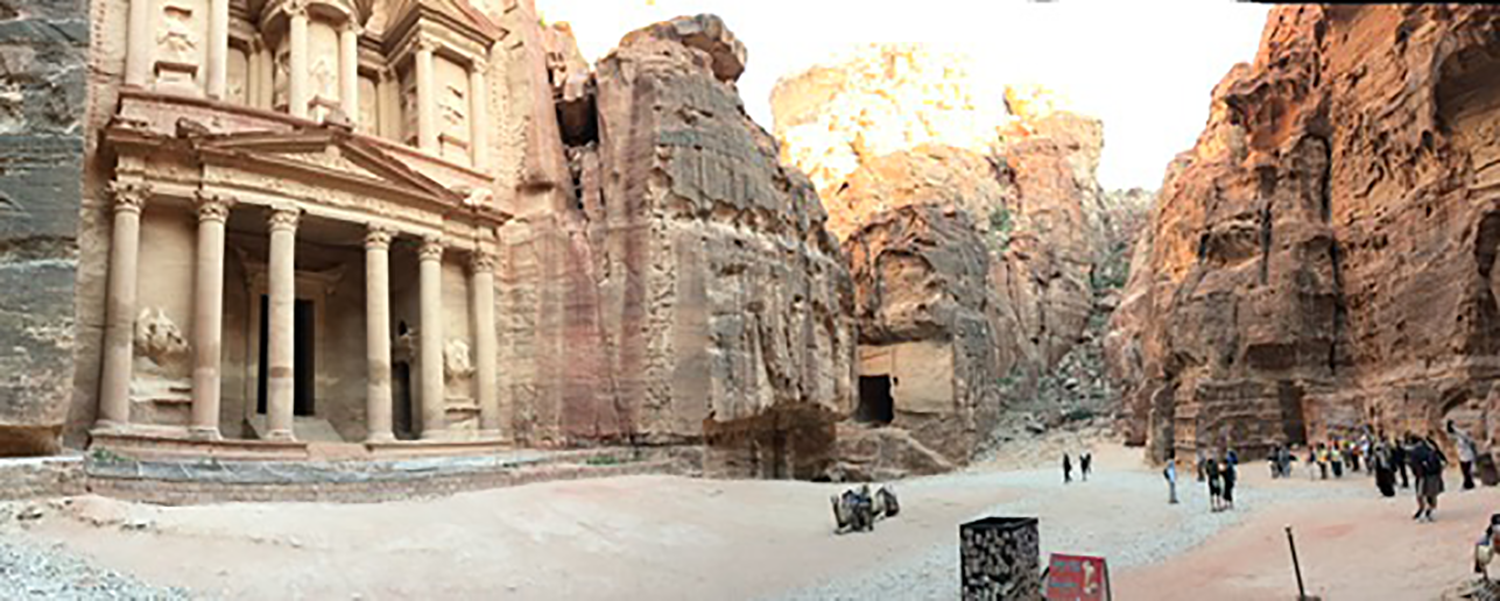
[bctt tweet=”“Being really clear about ROI, articulating it, documenting it, is pretty much essential for social enterprises.” – @philanthromike #WhyCollaborate #podcast”]
Yeah, I would agree. I think that’s perfect. You gave us two wonderful examples, but I think the real takeaway there is to understand what it is that you’re measuring and to think about that upfront so that you know what you’re looking at and can factor that in to when you figure out what the ROI is on whatever the program is that you’re running or the partnership that you’re engaged in. I think that’s really great advice.
Well, Mike, thank you very much for being with me, is there any last thoughts that you’d like to share with our listeners before we have to say goodbye?
No, I think that’s it. Thank you so much for having me and I’d only say that hopefully the spirit of Tourism cares in this podcast is about giving and learning and sharing. I mean, Tourism Cares is very much community property and a vibrant community. We’re just happy to be the facilitators of that community. Some people have ideas, things they’re doing that are amazing. Questions, they should certainly reach out because we are here for you and the industry.
Fabulous. And we’ll make sure we have links to all of those websites that you mentioned throughout our conversation in your show notes page. And again, thank you very much for being here and I’ll look forward to touching base again. Thanks Mike.
Resources:
- Website: skoll.org
- Research: www.tourismcares.org/goodtravelsresearch
- Good Travels: www.goodtravels.org
We value your thoughts and feedback and would love to hear from you. Leave us a review on your favorite streaming platform to let us know what you want to hear more of. Here is a quick tutorial on how to leave us a rating and review on iTunes!
